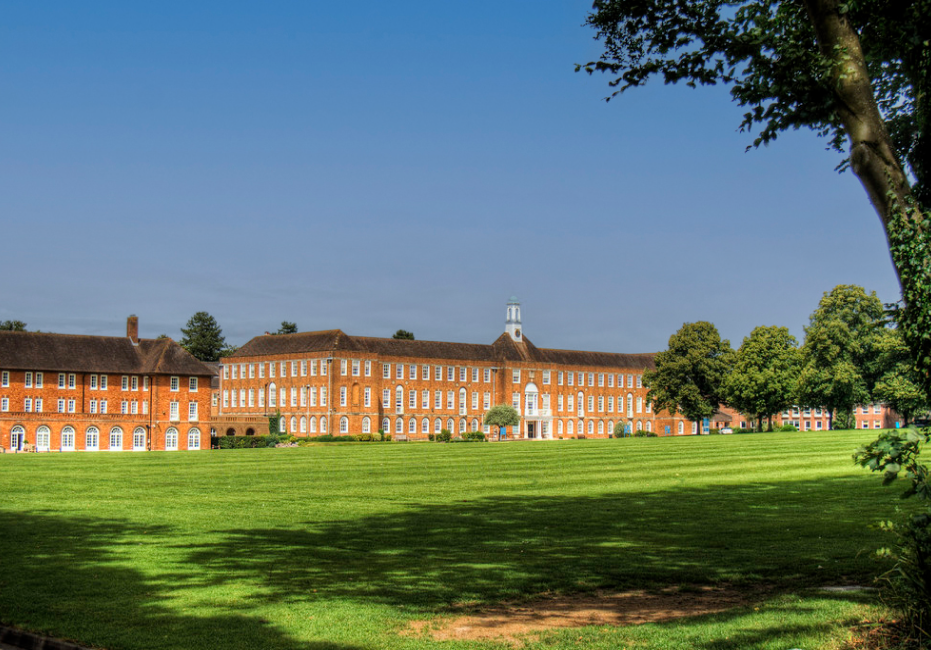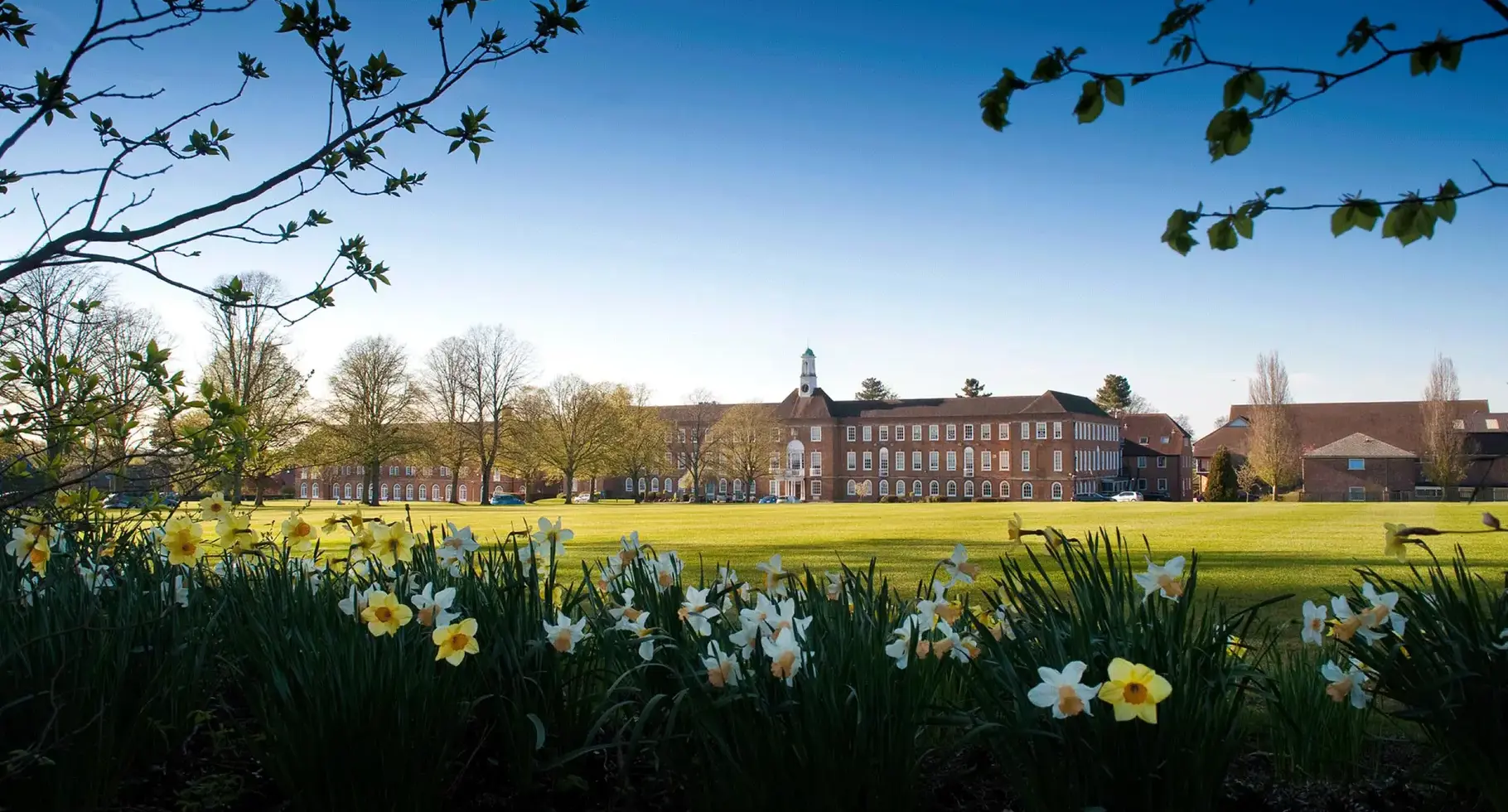 |
School policies at St Swithun's Winchester |
Privacy Notice
St Swithun’s is an independent school and charity registered in England and Wales which provides education services to girls aged 3 -11 with a co-ed preschool, and education services and boarding accommodation to girls aged 11-18 in the senior school. In this policy, whenever you see the words ‘We’, ‘Us’, ‘Our’ or ‘The school’, it refers to St Swithun’s School.
Our full details are as follows:
Address: St Swithun’s School (Winchester), Alresford Road, Winchester, SO21 1HA
Company number: 00110692
Registered charity number: 307335
Information Commissioner’s Office registration number: Z5378200
| What is This Privacy Notice for? |
|---|
|
This policy is intended to provide information about how the school will use (or "process") personal data about individuals including: its staff (including volunteers and external service providers); its current, past and prospective pupils; and their parents, carers or guardians (referred to in this policy as "parents"). We are providing this information as we believe it is important for you to understand that Data Protection Law gives individuals rights to know how their data is used. Staff, parents and pupils are all encouraged to read this Privacy Notice in order to understand the school’s obligations to its entire community. This Privacy Notice applies alongside any other information the school may provide about a particular use of personal data, for example when collecting data via an online or paper form. This Privacy Notice also applies in addition to the school's other relevant terms and conditions and policies, including:
Anyone who works for, or acts on behalf of, the school (including staff, volunteers, school council and service providers) should also be aware of and comply with the school's data protection policy for staff, which also provides further information about how personal data about those individuals may be used. |
| Responsibility for Data Protection |
|
Organisations used to be required to appoint a ‘Data Protection Officer’ who would be in charge of all high-level data protection tasks. This is no longer the case, and a ‘Senior Responsible Individual’ is accountable for data protection compliance. The School has appointed the Information Systems Manager, Ross Madderson at the time of writing, as the Senior Responsible Individual who will endeavour to ensure that all personal data is processed in compliance with this Policy and the principles of the DPA with oversight from the Bursar. Any questions about the operation of this policy or any concerns that the policy has not been followed should be referred in the first instance to the Information Systems Manager via email. Or write to us at Information Systems Manager, St Swithun’s School, Alresford Road, Winchester, Hampshire, SO21 1HA |
| Why the School needs to process personal Data |
|
In order to carry out its ordinary duties to staff, pupils and parents, the school needs to process a wide range of personal data about individuals (including current, past and prospective staff, pupils or parents) as part of its daily operation. Some of this activity the school will need to carry out in order to fulfil its legal rights, duties or obligations – including those under a contract with its staff, or parents of its pupils. Other uses of personal data will be made in accordance with the school’s legitimate interests, or the legitimate interests of another, provided that these are not outweighed by the impact on individuals, and provided it does not involve special or sensitive types of data. Legitimate interests:The school expects that the following uses will fall within that category of its (or its community’s) “legitimate interests”:
Consent:The school will obtain consent prior to:
In addition, the school will on occasion need to process special category personal data (concerning health, ethnicity, religion, biometrics or sexual life) or criminal records information (such as when carrying out DBS checks) in accordance with rights or duties imposed on it by law, including as regards safeguarding and employment, or from time to time by explicit consent where required. These reasons will include:
|
| Types of Personal Data Processed by the School |
|
This will include by way of example:
|
| How the School Collects Data |
|
Generally, the school receives personal data from the individual directly (including, in the case of pupils, from their parents). This may be via a form, or simply in the ordinary course of interaction or communication (such as email or written assessments). However, in some cases personal data will be supplied by third parties (for example another school, or other professionals or authorities working with that individual); or collected from publicly available resources. |
| Who Has Access to Personal Data and who the School Shares it With |
|
Occasionally, the school will need to share personal information relating to its community with third parties, such as:
For the most part, personal data collected by the school will remain within the school, and will be processed by appropriate individuals only in accordance with access protocols (i.e. on a ‘need to know’ basis). Particularly strict rules of access apply in the context of:
However, a certain amount of any SEN pupil’s relevant information will need to be provided to staff more widely in the context of providing the necessary care and education that the pupil requires. Staff, pupils and parents are reminded that the school is under duties imposed by law and statutory guidance (including Keeping Children Safe in Education) to record or report incidents and concerns that arise or are reported to it, in some cases regardless of whether they are proven, if they meet a certain threshold of seriousness in their nature or regularity. This is likely to include file notes on personnel or safeguarding files, and in some cases referrals to relevant authorities such as the LADO or police. For further information about this, please view the school’s Safeguarding Policy. Low-level concerns raised by staff that do not meet a statutory threshold are recorded in a secure database provided by CPOMS Systems Limited, access to which is tightly controlled by the Designated Safeguarding Lead. In accordance with Data Protection Law, some of the school’s processing activity is carried out on its behalf by third parties, such as financial or IT service providers, web developers or cloud storage providers. This is always subject to contractual assurances that personal data will be kept securely and only in accordance with the school’s specific directions. Transferring information outside the European Economic Area (EEA): In certain circumstances, your personal data may be processed outside of the UK and the EEA; for example, third party service providers may store certain personal data in a country outside the UK and the EEA. If we (or our service providers) process personal data outside of the UK and the EEA, we will take appropriate measures to ensure that your personal data is not used for their own purposes, is adequately protected in a manner which is consistent with this privacy notice, and in accordance with applicable laws. Those measures include: in the case of US based service providers, entering into European Commission approved standard contractual arrangements with them, or ensuring they have signed up to the EU-US Privacy Shield (see further https://www.privacyshield.gov/welcome); or in the case of service providers based in other countries outside the UK or EEA, ensuring that they are based in countries which have been deemed, by the European Commission, to be adequate, or entering into European Commission approved standard contractual arrangements with them. |
| How Long we Keep personal Data |
|
The school will retain personal data securely and only in line with how long it is necessary to keep for a legitimate and lawful reason. Typically, the legal recommendation for how long to keep ordinary staff and pupil personnel files is up to 7 years following departure from the school. However, incident reports and safeguarding files will need to be kept much longer, in accordance with specific legal requirements. For example, all public bodies and non-state institutions have been directed by the Independent Inquiry into Child Sexual Abuse (IICSA) to retain, indefinitely, all files and records of potential relevancy to the inquiry. If you have any specific queries about how our retention policy is applied, or wish to request that personal data that you no longer believe to be relevant is considered for erasure, please contact the Information Systems Manager, Senior Responsible Individual, by email, or by post at Data Protection Compliance Manager, St Swithun’s School, Alresford Road, Winchester, Hampshire, SO21 1HA. However, please bear in mind that the school will often have lawful and necessary reasons to hold on to some personal data even following such request. A limited and reasonable amount of information will be kept for archiving purposes, for example; and even where you have requested we no longer keep in touch with you, we will need to keep a record of the fact in order to fulfil your wishes (called a "suppression record"). For more information on the retention periods the school applies to its records please see our Data Retention Policy. |
| Keeping in Touch and Supporting the School |
|
The school will use the contact details of parents, alumnae and other members of the school community to keep them updated about the activities of the school, or alumnae and parent events of interest, including by sending updates and newsletters, by email and by post. Unless the relevant individual objects, the school will also:
The Bramston Bursary Foundation is purely charitable and relies entirely on fundraising to provide for the school’s bursaries, future capital projects, and other philanthropic initiatives which benefit the school community and its students. We undertake in-house research using publicly available information from third party sources such as Companies House, company websites, professional networks such as LinkedIn, political and property registers and news archives to identify individuals who may be willing to support. We sometimes engage the services of a trusted external specialist or organisation from time to time, to assist us in analysing our data and/or conduct research using publicly available sources to identify prospective donors. This research helps us to understand more about you as an individual so we can focus conversations about fundraising in the most relevant way. We aim to provide you with an experience as a donor or prospective donor which is appropriate to you. You always have the right to withdraw consent, where given, or otherwise object to direct marketing or fundraising. However, the school is nonetheless likely to retain some of your details (not least to ensure that no more communications are sent to that particular address, email or telephone number). If you would prefer us not to use your data in this way, please email us. |
| Your Rights |
Rights of access, etc.Individuals have various rights under Data Protection Law to access and understand personal data about them held by the school, and in some cases ask for it to be erased or amended or have it transferred to others, or for the school to stop processing it – but subject to certain exemptions and limitations. Any individual wishing to access or amend their personal data, or wishing it to be transferred to another person or organisation, or who has some other objection to how their personal data is used, should put their request in writing to Data Protection Compliance Manager, St Swithun’s School, Alresford Road, Winchester, Hampshire, SO21 1HA or by emailing us at dataprotection@stswithuns.com. The school will endeavour to respond to any such written requests as soon as is reasonably practicable and in any event within statutory time-limits (which is one month in the case of requests for access to information). The school will be better able to respond quickly to smaller, targeted requests for information. If the request for information is manifestly excessive or similar to previous requests, the school may ask you to reconsider the scope of your request.
|
| Data Accuracy and Security |
|
The school will endeavour to ensure that all personal data held in relation to an individual is as up to date and accurate as possible. Individuals must please notify the school via the main office or parent portal of any significant changes to important information, such as contact details, held about them. An individual has the right to request that any out-of-date, irrelevant or inaccurate or information about them is erased or corrected (subject to certain exemptions and limitations under Data Protection Law): please see above for details of why the school may need to process your data, of who you may contact if you disagree. The school will take appropriate technical and organisational steps to ensure the security of personal data about individuals, including policies around use of technology and devices, and access to school systems. All staff and school council members will be made aware of this policy and their duties under Data Protection Law and receive relevant training. |
Updates to this policy
The school will update this Privacy Notice from time to time. Any substantial changes that affect your rights will be provided to you directly as far as is reasonably practicable.
Queries and complaints
Any comments or queries on this policy should be directed to the Information Systems Manager, the Senior Responsible Individual, via email.
Or write to us at Information Systems Manager, St Swithun’s School, Alresford Road, Winchester, Hampshire, SO21 1HA.
If an individual believes that the school has not complied with this policy or acted otherwise than in accordance with Data Protection Law, they should utilise the school complaints procedure and should also notify the Information Systems Manager. You can also make a referral to or lodge a complaint with the Information Commissioner’s Office (ICO), although the ICO recommends that steps are taken to resolve the matter with the school before involving the regulator.
School Policies
This is a list of our school policies, for further information on any of these policies please contact the school.
Register your interest

Admissions
Our friendly admissions team is here to guide you through each step from your initial enquiry to final enrollment. For more information on the admissions pathway visit our admissions page.


